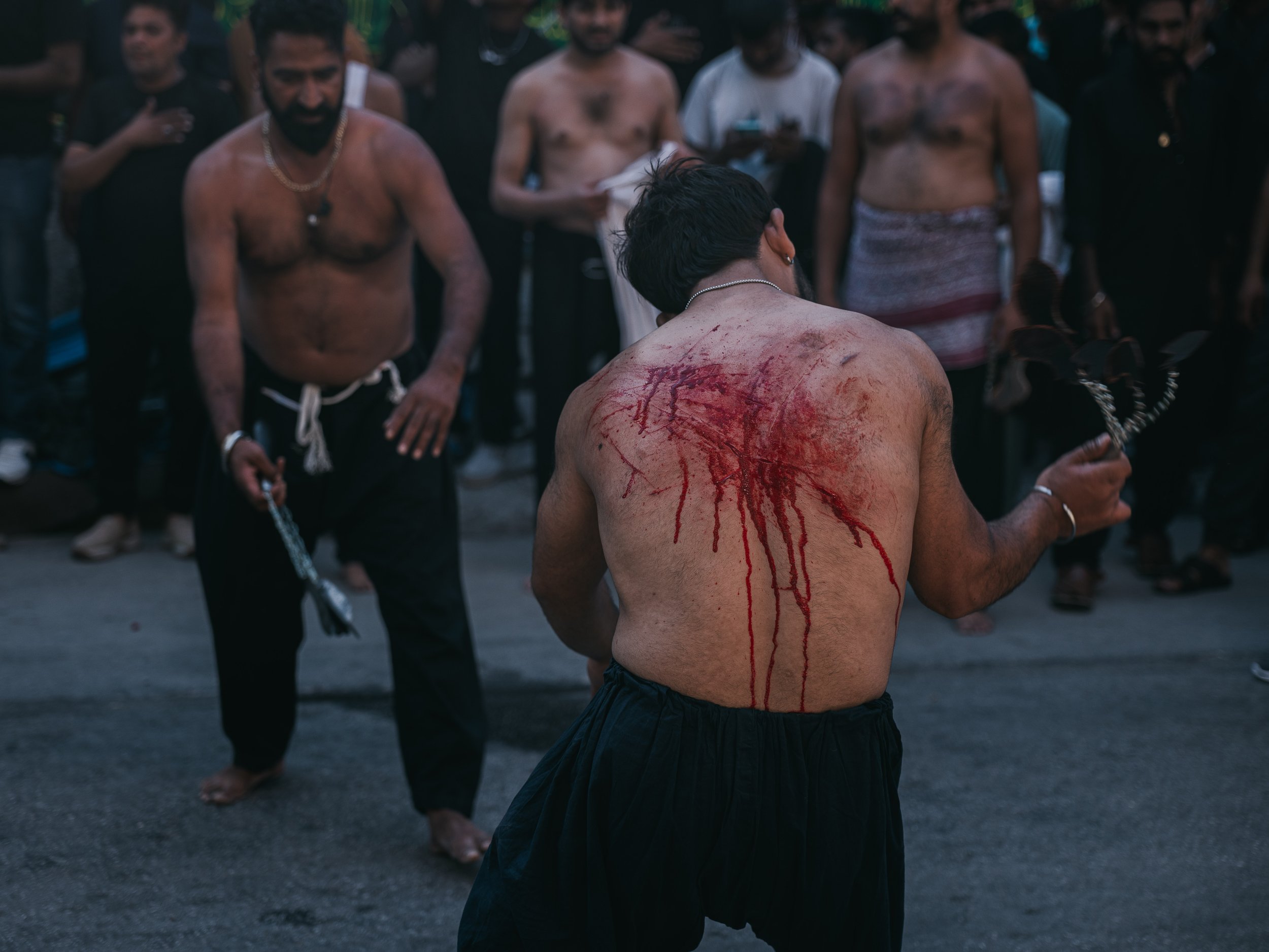
Margins of Mourning - Ashura
Attending and documenting the Ashura event at a self-organized Shia mosque in the industrial outskirts of Athens was a deeply moving experience. As photographers, we often find ourselves observing cultures and moments from the outside, but on that day, we were welcomed not as strangers, but as guests, with genuine hospitality and open hearts. Despite our differing beliefs, the people there allowed us to be present in an intimate and sacred moment of mourning and remembrance.
Ashura, which commemorates the martyrdom of Imam Hussein, the grandson of Prophet Muhammad, is one of the most significant events in the Shia Muslim calendar. It is not just a ritual; it is a profound act of faith, resistance, and communal solidarity. Witnessing how the community came together, united in grief and reverence, was humbling. The atmosphere was intense, but also deeply respectful. It was not a spectacle; it was a powerful expression of devotion and identity.
What struck me most was the simplicity of the space. The mosque, if one can even call it that, was in a converted industrial building, far from the grandeur and ornamentation often associated with religious spaces. No minarets, no elaborate decoration, just a carpeted room, a few banners, and people gathered in prayer and remembrance. It was a stark contrast to the ornate churches of Christianity I am familiar with, where architecture and ritual often play a dominant role. Here, it was about presence, community, and faith. Nothing more was needed.
This self-organized mosque, unrecognized officially but clearly central to the lives of its community, represents a reality for many immigrants and minorities in Europe. It is a place built not from wealth or recognition, but from necessity and devotion. And still, it felt sacred. There was something incredibly powerful in seeing how these individuals, often living on the margins, hold onto their faith with such dignity and strength.
The fact that this mosque is self-organized is not incidental—it is a direct response to the broader socio-political context of religious life in Athens. Despite being a European capital, Athens has only one official mosque, which opened as recently as 2020 after years of political debate and delays. However, that mosque is state-run and does not cater to the needs of the diverse Muslim population in the city, particularly the Shia community. As a result, many Shia Muslims have taken it upon themselves to create spaces of worship in improvised locations—garages, warehouses, basements—transforming them into sanctuaries where they can gather, pray, and keep their traditions alive.
These informal mosques are born out of both resilience and exclusion. Without official recognition or support, they exist in legal and social limbo. And yet, the strength of the faith found within them is undeniable. They reflect not only the spiritual commitment of the community but also its perseverance in the face of marginalization and invisibility. In this context, the mosque we visited was more than a religious space—it was a powerful act of self-determination.
Being granted the opportunity to photograph such an event was not only an honor but also a reminder that human connection, respect, and curiosity can cross cultural and religious boundaries. In that small, unadorned space, I saw something universal, our shared need for belonging, meaning, and spiritual connection.














